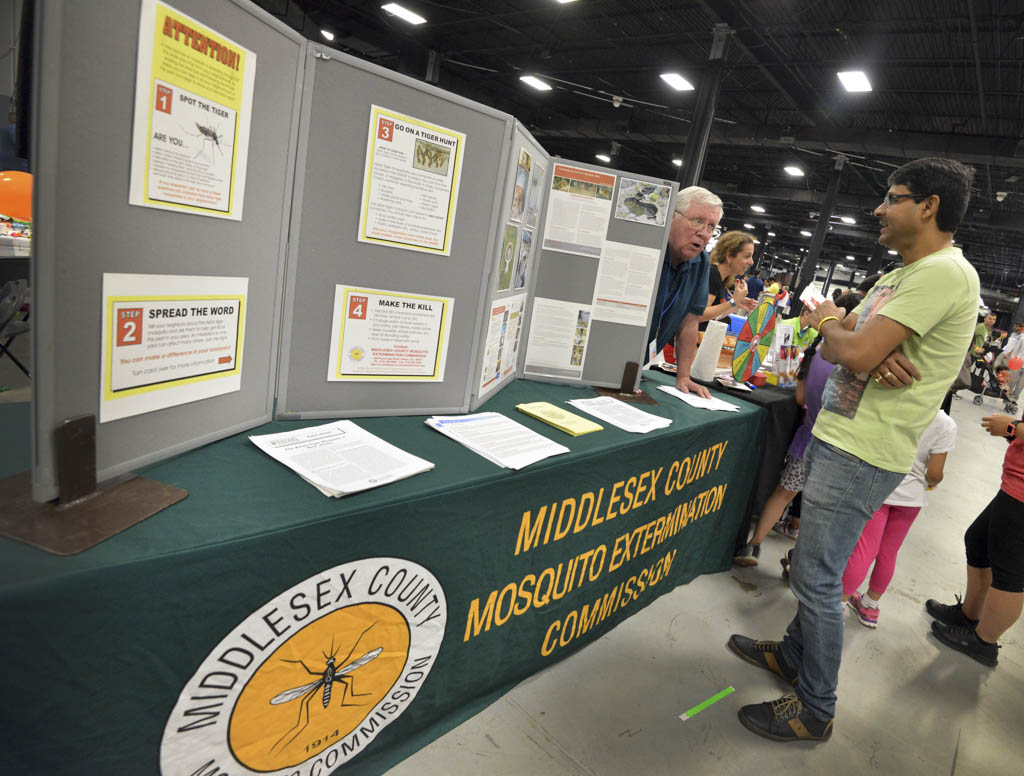The Middlesex County Mosquito Extermination Commission has been inspecting and treating mosquito sites throughout the county and is offering advice to residents on curbing mosquitoes in their yards.
Spring is a good time of year to find and remove areas where mosquitoes are likely to breed, such as standing water, according to a statement released by the commission. Dr. Deepak Matadha, superintendent of the Mosquito Extermination Commission, said many mosquito species come from large flood plains and swamps, which can best be controlled by N.J. Department of Environmental Protection-licensed personnel employed by the commission.
Experts use a comprehensive and integrated approach to manage mosquitoes, which includes: mosquito surveillance, water management, biological control, chemical control and public education, according to the statement.
“Here in Middlesex County, the health of our residents is always a priority. There are many health risks associated with the spread of mosquitoes, and keeping them at bay can be a challenge. However, the commission has always risen to that challenge by educating our residents while keeping them safe,” Middlesex County Freeholder Shanti Narra, chair of the county’s Public Safety and Health Committee and liaison to the Mosquito Extermination Commission, said in the statement.
Matadha said there may be many “small sites” in and around one’s property that attract mosquitoes and should be removed or cleaned immediately by the owner or residents. Female mosquitoes lay their eggs in stagnant or standing water, so eliminating water or waterlogged areas from the property will stop the mosquitoes from reproducing, according to the statement. This helps eliminate the spread of species like the Asian tiger mosquito, an aggressive mosquito that remains active throughout the day.
“To end the discomfort and disease that this mosquito can spread, residents need to practice good water sanitation on their properties,” Matadha said.
The Asian tiger mosquito is one that the county is working especially hard to eliminate, as it is capable of spreading new emerging diseases such as chikungunya, dengue and Zika.
Here are some areas to be mindful of when guarding against mosquitoes:
- Standing or stagnant water in ditches and catch basins.
- Water from overflowing or open septic or other waste systems.
- Water that collects in buckets, cans, jars, barrels, boats, discarded tires, clogged roof gutters, tire ruts, wading pools or pool covers.
- Any artificially created collection of water.
“If we work together, we will ensure that all of Middlesex County’s residents can enjoy their summer while staying safe, healthy and comfortable,” Freeholder Director Ronald G. Rios said.
Some of the actions residents can take to protect themselves and their families from mosquito bites and prevent mosquito borne diseases are:
- Once a week, empty or throw out items that hold water, such as tires, buckets, planters, toys, birdbaths, flowerpots or trash containers.
- Make sure doors and windows have tight-fitting screens. Repair or replace screens that have tears or holes.
- Cut down weeds, trim and maintain shrubs and grass to reduce adult mosquitoes harboring in vegetation.
- Stay inside at dawn, dusk and early evening when mosquitoes are most active.
- Wear long-sleeved shirts and long pants.
- Apply insect repellent containing EPA-registered active ingredients such as DEET, Picaridin, IR3535 and oil of lemon eucalyptus (PMD). Always apply according to label instructions.
- Contact the Mosquito Commission at 732-549-0665 if there is a significant mosquito proble.
For more information, visit www.mosquito.org.

